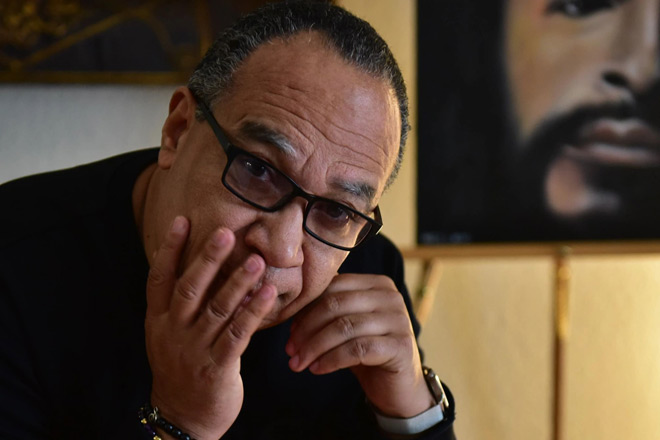
Now in 2022, the story of Mr. King goes far deeper and continues to grow. A jack of all trades, he is a record producer, manager, composer, and all-around music business mastermind. With a list of credits that run a mile long, just to name a few, King is responsible for the production of Timex Social Club and Madonna’s Who’s That Girl soundtrack. Memorable achievements, King is still very active all these years later, not only with Club Nouveau, but managing artists as well as hosting several radio shows. Recently, he sat down to chat about his career in music, his keys to success, staying true to himself, plus much more.
Cryptic Rock – You have been involved in the music industry for a long time. Working as a producer, songwriter, performer, and manager, tell us, how would you describe your career?
Jay King – It’s been interesting and a learning experience.
Cryptic Rock – Your career has also been extremely diverse, too.
Jay King – That’s because the music business is a very diverse business. It is not as simple as it seems, there’s a lot of moving parts. If you don’t understand every aspect of it, you can get misled in other aspects of it. There’s some realities that you have to bring into it, otherwise you will get disillusioned. You will then probably become disenfranchised, unhappy, and disappointed. It’s a very fleeting business.
My mamma said, “If what you do is what makes you who you are, then you ain’t shit.” It was important to me that the music was just that: a business. It was something I did and enjoyed. I enjoy a lot of different aspects of it, so I partook in every part of it that I absolutely could. I just never let the music business define me or make me more or less; it is what it is. It’s an interesting business: you can be the king of the world one day and you could be nothing the next. That is if you let it be the driver of your narrative. Or you could just be a dude who does music and sometimes you have great success, and sometimes you don’t, but you always get to do it and you get to enjoy the ride. That is what I did, I made sure I enjoyed the ride.
Cryptic Rock – Your approach has worked, just look at your track record of success. It is compelling to see how your career has developed. Was going from a producer to a performer different for you?
Jay King – It’s absolutely different, it’s scarier. As a producer, you get in the studio and you work until you get it right. By the time you get it out in front of people, you’ve done all the work you could to get it right. If it’s not, it’s because you can’t hear. Everything is perfect; you’ve got the perfect space to build from. But as a performer, when you get on that stage, every mistake is right in front of you. On stage every scrutiny is right in front of you, every eye is right is front of you, every critic is right front of you, every statement is right in front of you…and it ain’t always a good one.


Cryptic Rock – Right, that is a lot of pressure. You conquered all of that and found success as a performer. Tell us about that success.
Jay King – This is where being a performer versus a producer is different. When you are a producer, you produce and move on. If the record works, great, if it doesn’t, you have a new project to do and it’s no big deal. As a performer, when your record doesn’t work there’s a lot of scrutiny from your record company, management, and a lot of different people who have a lot of different opinions about who you are and what you do. You have to be comfortable. As an artist, I had to make sure I was comfortable with creating what I was creating without expectation. If you happen to get a hit record, you should consider yourself lucky and blessed; that’s God looking out for you.
There are some people that do this for the better part of 30 or 40 years that never have a hit record, a record that goes to number one or wins a Grammy. Marvin Gaye didn’t win a Grammy until he did “Sexual Healing.” Can you imagine that? This is the guy who had the greatest album ever recorded in the history of the music business, and yet that album did not win a Grammy, not a single, nothing – and that album is What’s Going On (1971). You have to know who you are when you do this stuff. You can’t let what you do make you who you are. That is what I had to remember and what I always remind myself of as an artist. You have to do the music because you love it, and if it happens to resonate with people once, great.
Cryptic Rock – Your music has certainly resonated with people. You had success with Club Nouveau. The debut Club Nouveau album in 1986, Life, Love & Pain, did exceptionally well. Anchored by the single “Lean On Me,” that album had loads of great songs on it. Then you followed that album up with a very strong effort in 1988 with Listen to the Message, and in 1989 with Under a Nouveau Groove. What was that time like for you when Club Nouveau was having number one hits?
Jay King – It was for a period of time. I had a three-year run where I was just the hot guy. Then I started making more sociopolitical records and it wasn’t getting the same type of response from a marketing standpoint. I had to be cool and comfortable with the fact that these records that I was doing weren’t going to be treated with the same jubilation that records that I made earlier were. I had to decide, what did I want to do? My decision was to make records that I felt good about. They were not necessarily going to be big-selling records. I wanted to make statements in my records, say things; I wanted to feel good about what I said and feel comfortable with the message. You hope people will hear you and you get lucky enough to do a Marvin Gaye thing where you make a record that has the social impact and the commercial impact, but there’s a gamble with that.
Music was changing and Gangsta Rap was becoming a big deal. I was talking opposite Gangsta Rap, I was talking about people coming together and finding humanity. I was singing “Please tell me, people, why can’t we just come together and show each other love. You’re my sister, I’m your brother. I don’t know what to do 0r what I have to say so I get down on my knees and to my Lord, I start to pray.” People didn’t want to hear that shit. They wanted to hear “Motherfucker goddamn on your back, get up nigga.” That is where the music business was and Gangsta Rap was the order of the day. If you weren’t doing that kind of music, you probably weren’t going to have a hit record. I had to decide if I wanted to make hit records or if I wanted to make music, I chose music.
Cryptic Rock – You have to stay true to yourself as an artist. You clearly did and that is a great thing. As a veteran in this, do you feel that the entertainment industry dictates what they want to sell people and that it often is not the best quality?
Jay King – Well, it’s not just the industry, it’s our society. Music has always gone through iterations every two or three years. That’s the progression of the human being and how he or she engages with the world and the technology. It was always a moving technology from the time Les Paul put the two-track together and turned it into four tracks. The more we started going from a technological standpoint and being creative/innovative, the more music changed, and the more experimenting we could do. Then the more sounds change and the more creativity that is involved. That’s a good thing and you just have to find your way in it.
The wonderful thing about the music business is when I went through the phase where I was the ‘it’ guy. I was one of the top 100 people in the music industry, and I was cool. Then you go through your cool-off period where you don’t know where you are in the game. Then you go through your resurgence period where your music finds a new life for some reason; maybe some movie or commercial. You do the dance and you get comfortable with the dance. If you like you and are comfortable with you, you don’t concern yourself with what the dance is. That is part of it. If you’re lucky, like Carlos Santana, you get a record like Supernatural (1999) that becomes your biggest selling record in the history of your being. You just do this thing again and again in different ways. You go out, work, make more money, and enjoy the ride.
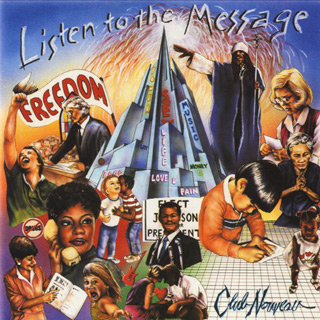
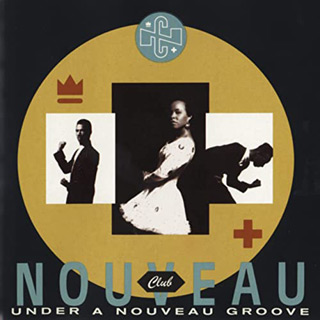
Cryptic Rock – Right. Speaking of doing the dance, your music has lived on in many ways. Many artists have sampled you. Someone not astute with music may not realize it, but many of your beats and melodies have been sampled into hit Hip Hop songs.
Jay King – Yes! I like that. I appreciate it and am thankful. I hope they never stop. I hope a new crop of people do it. I don’t care what they write on top of it, it’s their expression, they have the right to express, the same way I do. I don’t try to control what people write. I’m just thankful that they thought enough about you to want to record it again, again, and again.
Cryptic Rock – Yes. It gives the music new life and possibly introduces your music to a new generation of people. A lot of classic Hip Hop is sampled from other music. If you are music lover, it is compelling to figure out where a beat or melody really came from.
Jay King – Absolutely. From that, new fans are born and new collaborations happen. I’m hoping that Anderson .Paak will hear one of my records and decide he wants to collaborate with me. I’m a big fan.
Cryptic Rock – That would be cool to see. Speaking of new music, you released the Club Nouveau album Consciousness back in 2015. A strong record that is true to you, can we expect some more new music from you and Club Nouveau?
Jay King – Well I’m going to make a new record, I just got to find the time. Yes, I’m working on new ideas. I’m changing my format to fit the music business. Instead of trying to create a whole album, I just want to create a first single and build an album from the single. I am following what some of these young kids are doing and being inventive and creative along with them, see if I can make something catch on. I love the industry, I love where the industry is; I love how the industry has evolved. I love that owning your masters is automatic because of social media. I could only imagine what “Rumors” would have been if I had access with the same kind of radio, because we did it out of the back of our car. I guess it’s like being out of the back of your car now, but via the internet.
Cryptic Rock – Good analogy. The internet has pluses and minuses for an artist. With the internet, artists can more easily get their music exposed, and that is great. However, with the advent of the internet we also have the dawn of shorter attention spans and in many ways that killed the idea of an album, which is not a good thing.
Jay King – Well, the world’s changed. We can’t have it both ways. We can’t ask the world to change, but then ask the music world not to change. The world’s going to change and music is going to change. The way we consume is going to change, the way we interact is going to change; we’re going to evolve and grow. That’s just the way the tootsie rolls, and there ain’t nothing you can do about it.
Imagine everyone in the early 1900s, do you think they liked all the stuff that was happening? I don’t know if you know this or not, but when radio happened, record companies prohibited artists from going to radio stations. They didn’t want the artists at the radio stations. They felt if people could hear the record on the radio, then people wouldn’t buy the records. Publishers said, “Hey, you can play my song on the record, but you have to pay me money.” That’s why record companies don’t get royalties, but publishers do. When radio wanted to give royalties to record companies, they said “no, don’t play my music.” Publishers said, “Yeah, pay me for my sheet music and the airplay.” Publishers were way more progressive than record company owners. By the time record company owners recognized the flaw they made, it was too late.
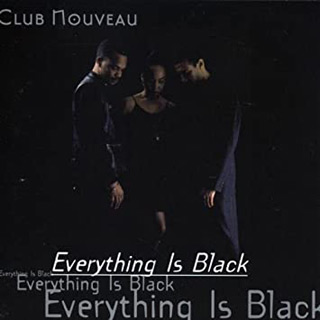
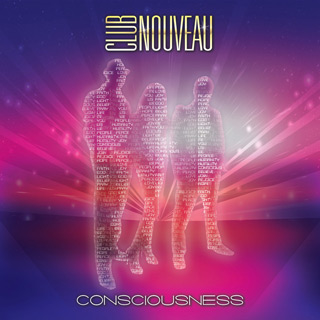
Cryptic Rock – Very interesting. A similar thing happened years later when music downloading came along.
Jay King – They made the same fatal mistake. Record companies have always been dinosaurs, and they did what dinosaurs always do, dinosaurs die off. Instead of having their own distribution system, they have to go through Apple. Apple is their distributor, Apple takes a 30 percent bill off the top and controls everything.
Cryptic Rock – Yes, it really is sad what happened there. As someone who has managed artists, what do you tell your artists as words of wisdom?
Jay King – First of all, this is a job, and you have to respect the job. If you really want to have a career you can’t just think about yourself when you are doing these deals. I really try to make sure if I am doing tour dates, I’m not just taking into account what I’m looking for, I’m taking into account what that promoter is looking for. I need that promoter to be my partner. I need that promoter to want to come back to do business with me again. If all I’m looking out for is me, that’s very selfish.
I tell my artists all the time, “Hey, if you want to have a career, you have to work on it. You have to make sure that people you’re in business with, that there is an up side for them too.” I also tell them to work, don’t stop when you get a hit record; you have to work that record. One thing Club Nouveau didn’t do was when we had big records was tour a lot. That is because we made so much money from record sales. We are one of the few artists who actually made a royalty from record sales. Only one percent of artists get paid from record sales, not from publishing, but selling records because they are so far in debt from making the record. They never see a royalty, only one percent of artists actually see royalties in their career. The other 99 percent never see it because it costs them so much to do the record.
Club Nouveau was fortunate, we were part of that one percent. I didn’t spend a lot of money making records, I was able to really keep my costs down and keep what I was doing tight. We came into the industry when the music business was changing. You didn’t have to have twenty guys on tour with you, so my whole touring party was nine or ten people. A lot of these bands were touring with 12 to 20 people. I really kept costs down, so by doing so, we made a lot of money. I really let artists know the more money you can save, the more efficient you can be, the more money you can make. Artists sometimes see when they’re spending the money, they don’t know the money they are spending is not there.
This is really just a job, and as long as you just remember that, you’re going to do great. My momma never let me become a big old star, so I never became a big old star in a world of stars. I tell artists that relationships are the biggest thing that are going to save you in this business. It’s going to be relationships that people have with you when they say, “I can put this guy on, or I can put you on.” They are going to say, “The reason I’m putting you on is because you’re so cool and that dude is crazy.” Boom, you just won.
Cryptic Rock – Exactly, and these are lessons for life, in general, as well. You are just full of valuable, compelling information. That said, you also have your own radio shows. Could you tell us about your shows?
Jay King – I do a couple of different radio shows. I do a show called Kings In The Morning on a podcast every Monday through Friday 8 AM to 10 AM on The Jay King Network. That show is wild, crazy, informative, unapologetically honest…which means it offends everybody. It doesn’t play by the rules in the world today, it’s very offensive to everybody, and I like it. That’s where you get to have the most honest conversations and human beings get to be human and expose who they are without fear.
On KDEE 97.5 FM Radio I do a show called Traffic Jams every Tuesday-Thursday from 3 PM to 6 PM. That’s more music, but I also engage with the community on everything from financial literacy to the debt that’s owed from the crimes committed against our community. We were once slaves in this country. The 13th, 14th, and 15th amendments provided us with the same inalienable rights of all Americas, they made us free and equal, but in this country we’ve been everything but that.
We’re at an age now where as a country we have to pay the debt that’s owed to the Americans of African descent for the crimes committed against us. Crimes committed, not by any group of people, but by our government. Our government committed crimes against us. In 1917, on the floor of Congress, it was Congressmen who said the greatest threat to America is the negro soldier who believes he has the same inherent rights as a white man; this is white man country. That’s what our government said, this is our Congress. Our government not only allowed crimes but participated and protected people who committed crimes against us. Those are the things I talk about, and I intertwine that with music, financial literacy, and mental health. Black folks are in a mental health crisis because of the crimes committed against us. We don’t talk about it and neither does the country. That’s why you have so many animated emotions from African Americans; we’ve suffered from a mental health crisis that we’ve never had the opportunity to address.
I also do another show in L.A. on Saturday and Sunday, I tape it at my house with my producer. It’s called The Jay King Show. It’s really about financial literacy, the history of America, and how we have to get better as Americans to be to, for, and with each other.
Cryptic Rock – These all sound like very informative shows. It seems like there is a lot of divisiveness in the world right now. People do not point themselves in the right direction with their anger and frustrations; they get at each other’s throats.
But it is really the governments that are the hypocrisy. Sadly people choose sides when all that is happening is they are being fed a skewed narrative. Your approach is what it’s about: it’s about all of us coming together, having conversations as people, and stopping ourselves from listening to the noise.
Jay King – I agree, exactly. That’s why I tell Black folk we’re not going to get the debt owed to us unless white folk become involved and say, “There’s a debt owed.” But why would white people join if we’re going to blame them? I don’t blame white people, I blame the government. The government just happened to be the white people of that day, but not the white people of today. I need you. I need you to not just agree with me, but to go and tell your friends.
I can tell you about some of the crimes committed against Blacks. Like in Ocoee, Florida, all Black people wanted to do was vote, because from 1906 to 1920 we couldn’t vote. We could vote when Woodrow Wilson was running for president, but they killed a whole community of Black folks and ran them out of town because they wanted to exercise their right to vote. We don’t know that history, and that was 1920-21. Black people didn’t move back to Ocoee, Florida, until 1981 – 60 years later. For 60 years Black people didn’t exist in this community, what happened to their property? They were some of the wealthiest people there at the time, but you don’t even know that history.
You don’t know about Elaine, Arkansas, or Bloomington, North Carolina, or what happened in Raleigh-Durham. That is because America has been so criminal, she hides a lot of her criminality, has gotten away with it, and doesn’t want to talk about it. We have to expose it and have to hold her accountable and say, “You owe it to the American people to pay this debt so we can get on the good foot and have a wonderful country to live in.”

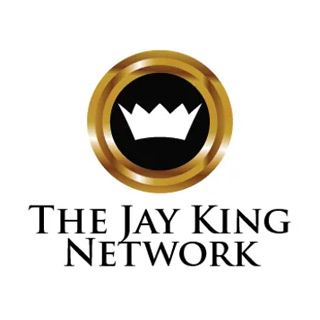


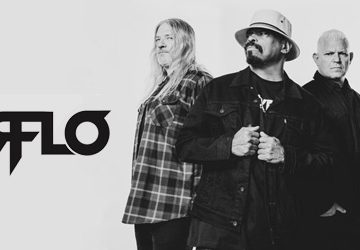


No comment